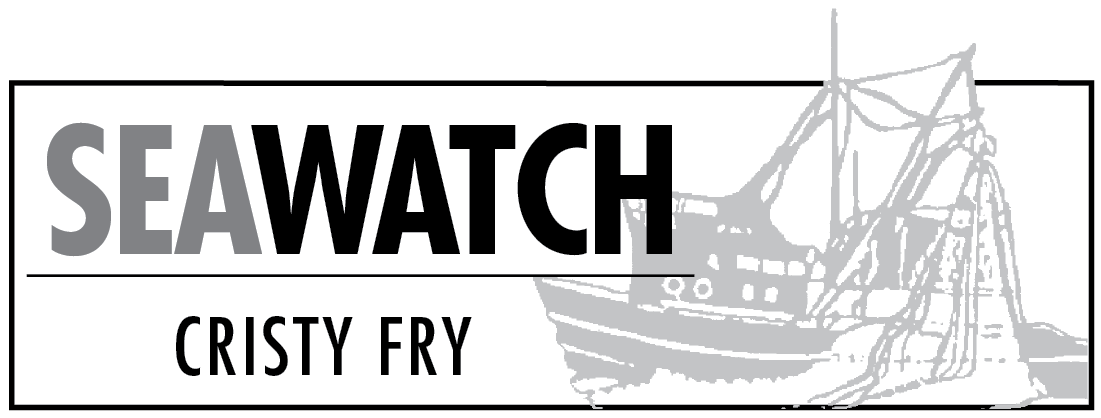The International Pacific Halibut Commission kicked off its 2014 annual meeting on Monday with newly reappointed commissioner Jim Balsinger acknowledging the concern and anxiety surrounding halibut stocks.
“The biggest concern of course is the status of Pacific halibut,” he said. “To put it in context, in the 90-year history of (the management of) this fishery, of this commission, this isn’t a new state. The halibut stock has been much lower than this before, so we have some confidence that there’s an ability to recover this.”
However, he said it was the first time in recent memory when there had been declining stocks for four years running.
“We’re anxious to discover what is the main cause of this,” he said.
He reminded participants that there was at least some good news, mainly that the IPHC staff has cutting edge science to aid it in its quest, along with comprehensive data on the halibut stocks going back to the 1920s.
“We have nothing but a bright future ahead for understanding all these issues.”
Balsinger went on to introduce new commission members for the U.S. seats, Don Lane and Bob Alverson, who were confirmed just days before the meeting taking place this week in Seattle.
Lane is the owner and operator of the Homer fishing vessel Predator, tendering salmon and fishing halibut.
He is active in various fishing groups and has worked closely with the Alaska fishery communities, including recreational sport users, sport charters and the commercial industry.
He has served as a member of the Pacific States Marine Fisheries Commission since 1988 and as a member of the Homer-based North Pacific Fisheries Association since 1985, serving as president from 1996 to 2002.
He also served on the Alaska Department of Fish and Game Homer Advisory Committee from 1984 to 1992.
Lane served in the United States Coast Guard from 1972 until 1975 and holds a U.S. Merchant Marine Officer Master’s License.
Lane told the packed room that he was very pleased to be appointed to the commission, and had seen the view from the other side of the table.
“I’ve sat in those chairs for many years,” he said, “and I understand the importance of being a commissioner, and the commission.”
Bob Alverson also is no stranger to the fisheries management process.
Alverson is currently manager and executive secretary of the Fishing Vessel Owners’ Association, a position he has held since 1976. Since 2007, he has served as a member of the Pacific Fishery Management Council Groundfish Advisory Panel. He also has served on the North Pacific Fishery Management Council’s ITQ Advisory Committee for Halibut and Sablefish since 2005. He has served on both the Pacific Fishery Management Council and North Pacific Fishery Management Council.
Alverson has been the recipient of numerous professional awards, including the Norwegian Commercial Club’s “King Neptune” award, for 30 years of service to the fishing industry.
He holds a bachelor of arts degree from the University of Washington.
The process of replacing two retiring commissioners, whose terms expired in March 2012, was long and rather convoluted.
Calls for nominees went out in January of 2012. By February, 13 names had been submitted, including Lane and Alverson, as well as other well-known names in the fishery such as Linda Behnken and Kevin Delaney.
Instead of producing two new commissioners, that list ended up getting tossed and the process opened up again in July of 2012.
According to an email from Balsinger, at the time, a combination of a number of factors resulted in the decision to re-initiate this public nomination process. Balsinger then held the seat reserved for a representative of the federal government,
Those factors included heightened interest by diverse user groups, the lapse of time since original nominees expressed interest in an appointment, and considerations of balanced representation on the commission.
It took until February 2013 to get a new list, with many of the same names on it, and when no two had been chosen by June, the terms of the two commissioners being replaced, Ralph Hoard and Phillip Lestenkof, were extended.
Finally, on Jan. 8, five days before the 2014 annual meeting began, Lane and Alverson were confirmed by President Obama.
The meeting continues through Friday, when the catch limits and season dates will be finalized.
Information as presented at the meeting is available at www.iphc.int/home.html.
The Alaska Department of Fish and Game has released an article entitled “The History of Upper Cook Inlet Salmon Fisheries: A Century of Salmon” by Katie Sechrist and Joe Rutz that details the colorful past and influence of the fishery.
In documenting the early days, the article says that the Kenai Peninsula has seen a tremendous history of canneries and buying stations since well before statehood.
Settlers rushed to build fish camps throughout the Kenai Peninsula because of abundant salmon resources and other finfish found there. Salmon packers built canneries at Kenai, Kasilof, Chisik Island, Homer and near Tyonek. Giant fish traps were constructed and dropped into the ocean to harvest salmon by the thousands. For decades, commercial fishing thrived in Cook Inlet.
Those runs were nearly wiped out by over-fishing that began during World War II to find protein sources for the troops in a time of rationing nationwide, and by the use of fish traps.
In a well-known story line, fish traps were outlawed with statehood, and careful management brought the runs back.
The article details the Cook Inlet “fish wars,” and talks about the importance of the commercial fleet as a management tool as well as the growing popularity of the personal use and sport fisheries.
Find it at http://www.adfg.alaska.gov/index.cfm?adfg=wildlifenews.view_article&articles_id=639.
Cristy Fry has commercial fished out of Homer and King Cove since 1978. She can be reached at realist468@gmail.com.


